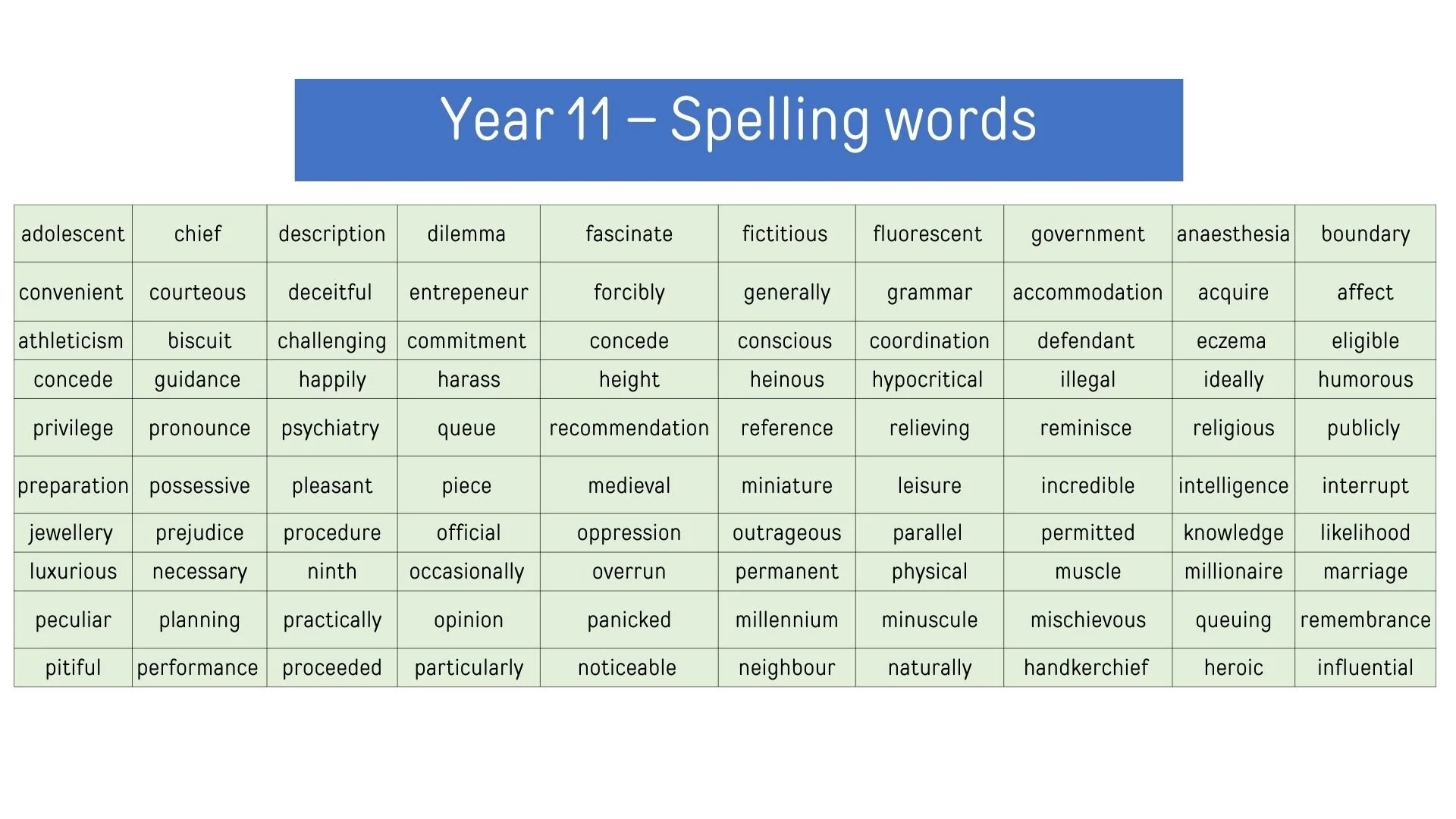How to Survive Year 11 English?
This is a big year for you, and it's easy to feel overwhelmed and daunted at the prospect of what lies at the end of your Year 11 studies. You're already halfway through your GCSE studies, so you are familiar with the work, but what can you expect at school this year?
The Year 11 English curriculum is an important stage of education for students. It is during this time that students develop their language skills further and delve deeper into various aspects of the English language. In this blog post, we will explore some key guide and tips for students to help them navigate the Year 11 English curriculum successfully.
Develop Effective Study Habits
Year 11 is a crucial year for students, and it requires dedicated effort to succeed. Developing effective study habits is essential for academic success in English. Here are some tips to help you improve your study habits:
Set goals: Break down the curriculum into smaller, manageable units and set goals for each one. This will help you stay focused and motivated throughout the year.
Create a schedule: Plan your study time and create a schedule that allocates dedicated time for each subject. This will keep you organized and ensure that you cover all the necessary material.
Review regularly: Set aside regular time for reviewing and consolidating your learning. This will help reinforce key concepts and ensure that you have a solid foundation for assessments.
Utilize resources: Take advantage of available resources, such as textbooks, study guides, online resources, and tutorials, to enhance your understanding of different literary genres and techniques.
Engage with Literary Texts
One of the key aspects of Year 11 English is engaging with literary texts. Students are expected to analyze, interpret, and discuss a variety of texts, both fiction and non-fiction. Here are some tips to enhance your literary analysis skills:
Understand the context: Before delving into the text, it is important to familiarize yourself with the historical and cultural context in which it was written. This will help you understand the author's intentions and the context of the narrative.
Analyze the language: Pay attention to the language techniques used by the author, such as similes, metaphors, and symbolism. This will help you gain a deeper understanding of the text and its themes.
Analyze the characters: Consider the characters and their motivations, conflicts, and development within the text. This will help you appreciate the plot and themes of the work.
Interpret the theme: Identify the main themes of the text and discuss how they are conveyed through the characters and plot. This will demonstrate your understanding of the literary work.
Prepare for Assessments
Assessments are an integral part of the Year 11 English curriculum. It is crucial for students to be prepared for different types of assessments, such as exams, essays, and presentations. Here are some tips to help you prepare for assessments:
Understand the assessment criteria: Review the assessment criteria provided by your educational institution. This will help you understand what examiners are looking for and how you can structure your essays or presentations to meet their expectations.
Practice writing: Regularly practice writing essays and other types of written assignments. This will help you develop strong writing skills and enhance your ability to think critically and express your ideas clearly.
Prepare for exams: Familiarize yourself with the format and structure of exams. Practice answering exam questions under timed conditions to improve your speed and accuracy.
Seek feedback: Seek feedback from your teacher or tutor on your writing and presentation skills. This feedback will help you identify areas for improvement and guide you as you prepare for assessments.
Stay Motivated and Manage Stress
Year 11 can be stressful, especially for students facing various academic and personal challenges. However, it is important to stay motivated and manage your stress effectively. Here are some tips to help you stay motivated:
Set priorities: Prioritize your studies and allocate time for relaxation and extracurricular activities. This will help you maintain a healthy balance and prevent burnout.
Seek support: Reach out to friends, family, or classmates for support. Share your concerns and worries, and seek advice on how to manage stress effectively.
Stay positive: Surround yourself with positive people and engage in activities that bring you joy. This will maintain a positive mindset during challenging times.
The Year 11 English curriculum provides students with ample opportunities to develop their language skills and delve deeper into literature. By following the guide and tips outlined in this blog post, students can navigate the curriculum successfully and achieve their educational goals.
Remember, hard work and dedication are essential, but with the right approach, you will succeed. Good luck!
Not know how to best spend the time before an exam? Check out our blog about pre exam ritual!



